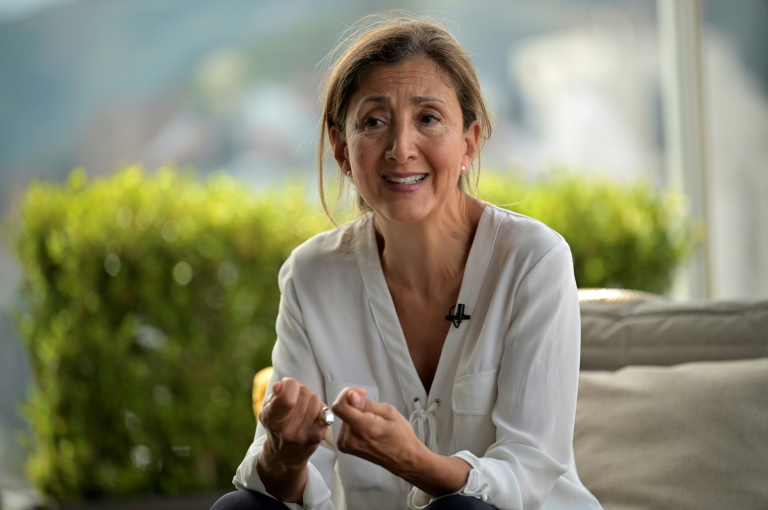The anguish did not end with her liberation from the clutches of FARC guerillas 13 years ago, says Ingrid Betancourt, held hostage in a South American jungle for more than half a decade at the height of Colombia’s decades-long conflict.
Back in her country of birth to confront her captors in an historic session of Colombia’s Truth Commission, the Franco-Colombian politician tells AFP of the agony that accompanies every separation from her family to this day.
While she is happy for her captors to avoid jail in exchange for sharing the full truth of their deeds, Betancourt hopes her tormentors will be given an “exemplary” sentence.
Here are excerpts of what she told AFP.
– What has been the most difficult after-effect of your captivity?
“The suffering of my children; it is a permanent pain. Any time there is tension in the family, the pain of the kidnapping resurges, the impossibility to fill the void of that time and distance.
Every time we separate, that someone takes a plane or we plan a trip, there is an anguish of separation because in one trip I did not return. And this is something that for them is still a very raw experience.”
– What punishment are you hoping for?
“I, like all my fellow hostages and FARC victims, want this process to lead to peace without impunity.
We accept that they do not go to jail if they tell the whole truth. That is a commitment we have made, but within the powers of the peace tribunal to issue sentences, there is scope for sentences with a loss of liberty.
I think it is important that we have exemplary sentences and it is not with a vengeful spirit at all. I don’t want them to go to jail, I don’t care, it won’t change anything to my life. What will change my life is to feel that Colombians stop trivializing violence.
I think it has to be a sentence of loss of liberty. Not in jail, but with mobility restrictions in their homes… that they feel restricted in their lives because of what they did.
To me, honestly, when they say there will be reparative sentences, what, are they going to plant trees? No, no thank you. Gardening for what they did to us? No.”
– How do you feel about your captors today?
“I believe that they have started on a path, which I want to recognize, of leaving behind that dynamic in which they thought: ‘we were fighting for the people and what we did, we did it because we had a just ideology.’
But it is clear that… what they did to us is not allowed, it is a war crime and a crime against humanity.
I think it is something they still have a hard time processing, but at least they want to recognize it.
I think they have difficulty in expressing emotion and that is a difficulty I think is linked to their experience as warriors … I have seen that their emotions are still totally frozen.”
Betancourt was captured in 2002 while campaigning for Colombia’s presidency, and rescued in a military operation six-and-a-half years later, in 2008. She was chained for much of her captivity after she tried to escape.
While being held hostage Betancourt missed her father’s death, as well as crucial years in the young lives of her children. She now spends her time between Britain and France.
The FARC has been disarmed and disbanded under a 2016 peace pact that ended Colombia’s internal war, and has since converted itself into a political party.










